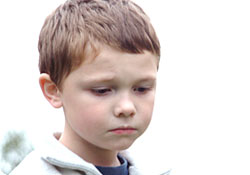Subsequently, and it seems in response to that decision, the Law Reform Commission produced a report “Damages in an Action for Wrongful Death”. In Chapter 9 Part 5 of that report the Commission expressed the view, inter alia, that in a claim on behalf of a child of the deceased for damages for wrongful death, any monetary benefits or domestic services the child has received, or may receive, from any person other than the deceased should be irrelevant to the assessment of the child’s damages.
The Commission recommended legislative changes which were subsequently adopted and resulted in amendments of the Supreme Court Act 1995.
The following provisions of the Supreme Court Act, 1995, as amended are of critical importance:
“ S.23A(7). In this section —
Financial benefits means either or both of the following —
(a) Monetary benefits;
(b) other material benefits, having a monetary value, including, for example, domestic services.
Section 23B Damages for child’s benefit in wrongful death proceeding
“(1) This section applies if —
(a) in a proceeding under this division, a court is assessing damages in relation to financial benefits lost by a child of the deceased person as a result of the deceased person’s death; and
(b) The deceased person predeceases another parent of the child (the surviving parent).
(2) …
(3) If there was a relationship between the deceased person and the surviving parent that ended before the deceased person’s death any damages assessed must not be reduced because the relationship ended before the death.
(4) In assessing damages, the court must not take into account any financial benefits that the child has received, or may receive, from any person other than the deceased person, including any financial benefits that the child has received, or may receive, as a result of —
(a) a new relationship that the surviving parent may enter into after the assessment; or
(b) a new relationship entered into by the surviving parent since the death of the deceased person.
(5) In this section —
financial benefits see section 23A.
relationship see section 23A”
The amendments appear to have fundamentally changed the approach to the assessment of damages in a claim for loss of dependency brought by the child or children of a deceased parent, in circumstances where the deceased and surviving parent had separated prior to the death and the surviving parent takes over the care of the offspring.
Prior to the amendments, children did not generally recover damages attributable to the substitution of the services of their deceased parent by their surviving parent.
In Nguyen v Nguyen (1990) 169 CLR 245 Dawson, Toohey and McHugh JJ in their joint judgment said at p 266:-
“Courts have been reluctant to conclude that when someone outside the immediate family voluntarily takes over the care of the household, especially the care of infant children, a deduction should be made from the assessment of damages due a plaintiff, and reluctant to recognize that the loss suffered by a plaintiff is thereby reduced. The reasoning behind this reluctance has taken a variety of forms. In Hay v Hughes [1975] QB 790, the grandmother of two children assumed their care upon the death of their mother, and the Court of Appeal held (at page 809) that the grandmother’s services should be ignored in calculating the loss suffered by the children on the basis that:-
“At the time of their mother’s death it was anyone’s guess what would happen to them and the defendant has not discharged the onus of establishing that at that time there was a reasonable expectation that the grandmother would act as she subsequently did.”
….. In other cases, the reluctance has stemmed from the belief that the care provided by the relatives was not a consequence of the death of the deceased but flowed rather from an independent source, namely, the generosity and altruism of the relatives
….. The same attitude is reflected in a recent decision of the Court of Appeal in Spittle v Bunney [1988] 1 WLR 847 where Croom-Johnson LJ (at 853) attempted to identify its logical basis:

“In cases where an orphan has been taken in by a close relative there has been a general, though not universal, reluctance to say either that the orphan has suffered no loss or has acquired a benefit. The logical reason for saying ‘no loss’ is that no services can really replace the services of a mother”
….. Whatever be the true basis of the reluctance — and it may be partly the belief that voluntary unsolicited assistance cannot be permanently relied upon — it has been accepted that this form of assistance should not be brought into account in relief of the wrongdoer.”
(My emphasis)
In NSW Insurance Ministerial Corp v Willis (1995) 35 NSWLR 668 the Court of Appeal considered an unusual factual matter. The deceased, Mrs Pietsch, was the mother of three children. She and her former husband, Mr Pietsch, had two children. Mrs Pietsch and a Mr Willis had a child after her separation from Mr Pietsch. She and Mr Willis then separated thereafter. Mr Willis had no involvement with his child after Mrs Pietsch’s death. Mr Pietsch cared for his two children and Mrs Pietsch’s sister cared for Mr Willis’ child.
In his judgment Meagher J said at p 671;
“In order to evaluate this submission one must appreciate that the separation of Mrs Pietsch’s family after her death was, as his Honour found, entirely reasonable; and also in law foreseeable by the tortfeasor. It was also the direct result of the tortfeasor’s negligence.”
The point he was there considering was a submission by the appellant/defendant’s counsel that the trial judge had erred in allowing what he believed was duplication, in that the costs of both past and future services was allowed to Gelinda, in the household she was living in, and to Nicole and Shane in Mr Pietsch’s household. It is noteworthy that the level of past services to Gelinda was more than twice that allowed in total to Nicole and Shane. Meagher JA’s comments were in support of the view that both sets were reasonably required and were in fact supplied.
In respect of the issue which is here under consideration Meagher JA said:-
“The next submission is that the trial judge did not take sufficiently into account the duty of Mr Willis ….. to support his child. The sad fact is that both before and after the fatal accident he was disinclined to perform that duty. The cost of replacing the services which the mother provided during her lifetime without the help of a father cannot be diminished by the fact that the father owes a legal duty to which he is still unsympathetic.”
Sheller JA in his judgment said at p 674:
“At the date of Mrs Pietsch’s death her three children were living with her. After her death Mr Pietsch took back his two children, Nicole and Shane ……. Gelinda was not accepted by him but cared for by Mrs Pietsch’s sister ….. Kikham DCJ said that in light of the family circumstances there was a strong probability that this would follow if Mrs Pietsch died while her children were young. He described the case as exceptional. The children had gone to two different homes against a background of obvious and predictable bitterness.”
Sheller JA continued at p 675;
“The ‘injury’ resulting from such death to the claimant in respect of which damages are recoverable under the Act has been judicially confined to the pecuniary loss sustained. That is a net amount measured by calculating the loss of material benefits or of the reasonable prospect of material benefits which depended on the continuance of the life of the deceased and deducting therefrom the material gains, arising on the deceased’s death, to which the claimant had a reasonable expectation, whether as of right or otherwise; Public Trustee v Zoanetti (1945) 70 CLR 266 at 276-279 per Dixon J, as he then was.”
(Emphasis added)
In considering the appellant’s argument that the trial judge did not sufficiently take into account the duty of Mr Willis to support his child, Sheller JA said at p 677;
“In the present case this was not a relevant consideration. Until the time of her death Mrs Petisch supported Gelinda. By the death of her mother she lost that support. It could not be said that on her mother’s death, she had a reasonable expectation of material gain which could be measured by reference to support to be provided by her father. The evidence accepted by his Honour was that her need for support was only likely to be provided by others and he compensated her accordingly. He was entirely justified in doing so.”
(Emphasis added)
In my view the basis for upholding the trial judge’s assessment of damages in respect of Gelinda was that the court found there was no reasonable expectation of material gain to Gelinda arising from her mother’s death, which could be said to offset the loss she suffered as a result of her mother’s inability to provide services herself because of her death.
That decision is entirely in accordance with the approach of the High Court in Nguyen as shown in the passages which I have set out.
The time for assessing the reasonable expectation of material gain is at the time of the death of the children’s parent. The fact that a person, who was not at the time of the deceased’s death reasonably expected to take over the care of a child, does later take on this duty does not mean that compensation for lost domestic services will cease to be calculated from this later time.
So much is evident from the High Court’s consideration of the decision of Hay v Hughes [1975] QB 790 in Nguyen, and is reiterated by Sheller JA in Willis in the passage I have highlighted.
In Hay, as seen in the passage repeated at paragraph 7 herein, the grandmother was not reasonably expected to take over the domestic care of her grandchildren at the time of their mother’s death. As such the grandmother’s services were to be ignored in calculating the loss suffered by her grandchildren, despite the fact that she did in fact subsequently undertake to care for them.
This view about a child not recovering significant damages if the surviving parent is expected to accept his or her responsibility to care for the child was endorsed by the Full Court of the Supreme Court of Western Australia in Houareau v Bouyer (1990) ATR 81-044. In that case Kennedy J, with whom Franklyn J agreed, said at p.68,104;
“Only in unusual cases, it appears, can a child recover a substantial award for his mother’s death if his father is still alive and able and willing to discharge his obligations to the child.”
A contrary view appears to have been adopted in Targett v Targett [1999] TASSC 87 where Wright J considered a case of children with different paternities where however a father figure was living as part of the family unit at the time of death. There, two children — Samantha and Ryan, were the children of the deceased. Her former husband, Darren Price, was not Samantha’s father but had treated her as his own daughter since her birth. Her biological father was unknown. He was the natural father of Ryan and was living in a de facto relationship with the deceased when she died.
 From the time of Samantha’s birth until Samantha’s mother’s death, her mother was engaged full time in domestic duties including caring for her children. After her death, Darren Price has taken over the dual role of father and mother, had ceased employment and was engaged full time in caring for the children. The most relevant passages are paragraphs 12 and 13 of the judgment. Wright J said:-
From the time of Samantha’s birth until Samantha’s mother’s death, her mother was engaged full time in domestic duties including caring for her children. After her death, Darren Price has taken over the dual role of father and mother, had ceased employment and was engaged full time in caring for the children. The most relevant passages are paragraphs 12 and 13 of the judgment. Wright J said:-
“It seems to me that as Mr Price, the surviving de facto spouse of Miss Targett, is not a claimant in these proceedings, there is really little, if any, scope for the operation of any of the factors adverted to in Nguyen v Nguyen as possibly reducing a claim of this kind. That he is the surviving parent is almost irrelevant for present purposes. The role which he currently fulfils could equally have been fulfilled by a caring relative or friend, except, of course, that he provides emotional stability and support which would otherwise probably be absent. Provided the children are recompensed solely on the basis of the care now given from a source other than their mother, it seems that any discount to the commercial value of that support which is provided by their father as the care given, should only result from a deduction from the time which the evidence establishes he directs to household duties which can be fairly attributable to satisfying his own personal needs or which are attributable to duties which he previously provided and has continued to provide as the children’s father in the household structure. This approach, in my opinion, is consistent with both Nguyen -v- Nguyen and Van Gervan -v- Fenton.
I would also subscribe to the proposition which is indirectly supported by the views of Meagher JA and Sheller JA in NSW Insurance Ministerial Corp v Willis that the father’s replacement of the mother’s services after her death cannot be taken into account as reducing the children’s entitlement, merely because he has an independent legal duty to care for his off-spring during their childhood. This is particularly obvious in the case of Samantha who is not his child, although he has cared for her as her father since birth.”
In my view the decisions of NSW Insurance Ministerial Corp v Willis (supra) and Nguyen v Nguyen (supra) to which Wright J referred are not authority for the proposition he enunciates.
Much obviously depends on the particular evidence in a case, however as a general principle, where a child’s natural parent took over the care of a child following the death of another natural parent then, except in such factual circumstances as arose in Willis’ case, there was an offsetting gain such that substantial damages for loss of care would not be awarded.
The statutory amendments appear to have fundamentally changed that approach.
It is apparent from the definition of financial benefit that this phrase includes both monetary benefits and also domestic services of the sort considered by the court in Nguyen v. Nguyen (1990) (supra).
What is of critical importance is the provision of subsection (4) of 23B. These appear to have the result that in assessing damages the court must now not take into account any “financial benefits” (i.e. monetary benefits or benefits such as domestic services) that the child has received or may receive from any surviving parent.
 What the court is now required to do is to assess the full value of lost services which would have been provided to the child, whether monetary or domestic services, by the deceased person, if that person had not died. There is now to be no deduction on account of services provided by the surviving parent such that even if the plaintiff is now better cared for by the surviving parent, the child will nevertheless receive damages on account of the loss of monetary benefits and domestic services which were likely to have been provided by the deceased if he or she had not died.
What the court is now required to do is to assess the full value of lost services which would have been provided to the child, whether monetary or domestic services, by the deceased person, if that person had not died. There is now to be no deduction on account of services provided by the surviving parent such that even if the plaintiff is now better cared for by the surviving parent, the child will nevertheless receive damages on account of the loss of monetary benefits and domestic services which were likely to have been provided by the deceased if he or she had not died.
In assessing damages, courts have traditionally adopted a relatively conservative approach to the assessment of damages in actions for wrongful death. In Nguyen v. Nguyen (No 2) (1992) Qd.R.405 at 412, Derrington J, within Macrossan CJ and de Jersey J agreed said:
“In circumstances such as here an assessment based on commercial rates does not admit of a simple calculation of the number of hours which would be taken by an employed stranger in coming in daily from outside to perform the necessary tasks, and multiplying it by commercial rate appropriate to the performance of such services in the home of another, exclusive of the employee’s own affairs. The rate adopted must reflect the fact that in providing the substituted services, the first respondent is doing so in the comfort and convenience of his own home, and without wasting travelling time; that he can choose times which are convenient; that he may mix such services such as babysitting his children while enjoying his leisure; that such activities, which might be work to a stranger, may pleasure to him; and similar circumstances qualifying the adoption of a commercial rate for the services which he performs.”
Similarly, in Kuhlewein v. Fowke (2000) QSC 404 Mullins J said at paragraph 41;
“Compensation for the loss of gratuitously rendered domestic services by a wife and mother is not related to need, but to the loss of the services which would have been rendered. Damages are recoverable for this loss, whether or not they are replaced, provided that a pecuniary value can be placed upon them: Nguyen v Nguyen (1990) 169 CLR 245, 263. In that case the following comments were made in the joint judgment of Dawson, Toohey and McHugh JJ at 265-266:
‘But the damages to be assessed are those suffered by the plaintiff and cannot always be equated with the cost of such help. The services formerly rendered by a deceased wife may not be capable of being reproduced faithfully by services which are commercially available and the scope and cost of the only services commercially available may be disproportionate in comparison with the scope and value of the services which were actually provided by the deceased wife. In circumstances such as that it will not be reasonable to regard the cost of substitute services as any more than a starting point in assessing a plaintiff’s loss. Indeed, in cases where the disproportion is severe, the cost of commercially available services may offer no real guide at all. It must always be borne in mind that the damages to be assessed are those suffered by the plaintiff by reason of the death alone…
In some families, the children might reasonably have been expected in the course of time to have taken up, to a greater or lesser extent, the household duties previously performed by a parent. In that event, the loss incurred by reason of the death of that parent is the less. Of course, if the children take up the household duties, not in the ordinary course of events, but only because of the death of the parent, that will not reduce the total loss and it is irrelevant that the services do not need to be replaced by someone outside the household.’
Few Lord Campbell actions appear to find their way to judicial determination. Judges have, so far as I can determine, not yet been required to rule on the effect of the amendments to the Supreme Court Act to which I have referred. Nevertheless, there appears to have been a significant change to the assessment of damages as a result of statutory amendments, and discussion with other practitioners suggests to me there has been little appreciation of these changes within the profession.
David Reid





 From the time of Samantha’s birth until Samantha’s mother’s death, her mother was engaged full time in domestic duties including caring for her children. After her death, Darren Price has taken over the dual role of father and mother, had ceased employment and was engaged full time in caring for the children. The most relevant passages are paragraphs 12 and 13 of the judgment. Wright J said:-
From the time of Samantha’s birth until Samantha’s mother’s death, her mother was engaged full time in domestic duties including caring for her children. After her death, Darren Price has taken over the dual role of father and mother, had ceased employment and was engaged full time in caring for the children. The most relevant passages are paragraphs 12 and 13 of the judgment. Wright J said:- What the court is now required to do is to assess the full value of lost services which would have been provided to the child, whether monetary or domestic services, by the deceased person, if that person had not died. There is now to be no deduction on account of services provided by the surviving parent such that even if the plaintiff is now better cared for by the surviving parent, the child will nevertheless receive damages on account of the loss of monetary benefits and domestic services which were likely to have been provided by the deceased if he or she had not died.
What the court is now required to do is to assess the full value of lost services which would have been provided to the child, whether monetary or domestic services, by the deceased person, if that person had not died. There is now to be no deduction on account of services provided by the surviving parent such that even if the plaintiff is now better cared for by the surviving parent, the child will nevertheless receive damages on account of the loss of monetary benefits and domestic services which were likely to have been provided by the deceased if he or she had not died.